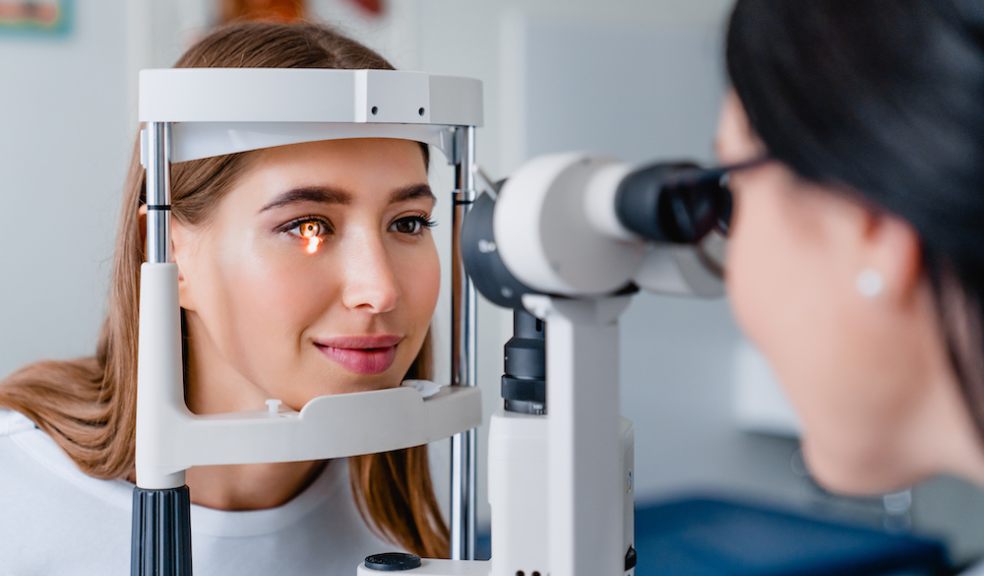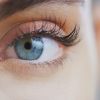
Six health conditions an eye exam can reveal
Dr Andy Hepworth from optical lens specialists Essilor.co.uk explains what eye examinations can reveal beyond short or long sightedness and common eye conditions.
“TV Celebrity Sue Perkins recently revealed that her father was diagnosed with an inoperable brain tumour as a result of an eye examination at an optician. This is one example of why it’s vital for people to get their eyes checked regularly by a professional, at least within the recommended timeframe of every two years minimum, even if your vision seems fine.
“Eyes are like a magnifying glass into the inner workings of our blood vessels, nerves and connective tissues throughout the body. So eye examinations are an important health check for overall wellbeing – and a potential way to identify an underlying potentially life-threatening issues.
Here’s six signs of other health issues that eye tests can reveal:
- Brain tumours: Tumours on the brain can cause increased pressure that results in swelling near the back of the eyes – meaning that an optometrist can see these abnormalities. Changes in pupil size or double vision are also potential signs of a brain tumour. Other cancers that might affect the eyelids and outer surfaces of the eye can also be found during a detailed eye exam.
- Diabetes: Diabetes affects eye tissue and thus can be identified with an eye exam. Tiny blood vessels in the retina that leak yellow fluid or blood can be a sign of diabetic retinopathy. Diabetic retinopathy happens when the blood vessels in the eye are damaged by high blood glucose levels, which is a serious condition if left undiagnosed. Early signs are usually picked up during diabetic eye screening – this is when photographs of your eyes are taken to check for damage.
- Cardiovascular conditions: Eye exams can detect a number of cardiovascular conditions, including clogged arteries or decreased blood flow due to heart disease. These conditions can leave plaque deposits or show as damage within the eye area to indicate a more significant health issue.
- High Blood Pressure: A very slight bleed in the eye, that presents itself as a tiny broken blood vessel in the white of the eye, can be associated with high blood pressure.
- High Cholesterol: Eye tests can detect some warning signs that point to the presence of high cholesterol. For example, sometimes people with high cholesterol have small deposits of fat (called xanthelasmas) that can occur on the eyelids. Similarly, by examining the cornea – the dome shaped clear structure in front of your iris - it can show what’s called an arcus that can relate to cholesterol levels.
- Thyroid eye disease: Thyroid eye disease is a condition in which the eye muscles, eyelids, tear glands and fatty tissues behind the eye become inflamed. This can cause the eyes and eyelids to become red, swollen and uncomfortable and the eyes can be pushed forward ('staring' or 'bulging' eyes).
What will an optician test for and check (beyond long and short sightedness)?
“A close inspection of the lens, retina and optic nerve can reveal a host of disorders, high blood pressure and diabetes among them, even if the patient feels fine and shows no other symptoms.
“There are lots of age-related eye conditions, including cataracts and glaucoma, that an eye examination can also identify at an early stage - so it is crucial to get your eyes test regularly, especially as you get older. Although some conditions have simple treatments, such as eye injections for macular degeneration, it is trivial to look for an optician to do regular checks and treat conditions that may appear with time. With that, you can ensure your eye health for a lifetime.
“Many opticians will carry out an Optical Coherence Tomography (OCT) scan as part of the eye examination. This hospital-quality scan uses cutting-edge technology to look more closely at your retina. OCT technology uses light waves to take images of your retina; similar to how an ultrasound scan uses sound waves. During an OCT scan, you will be asked to sit in front of a small machine with your chin placed on a support. The instrument then takes a picture of your eyes, revealing to the optician what is going on beneath the surface of the eye. They will review this information as part of your eye examination.
“An optician will also ask you questions about your general health in order to build up an overall picture if your lifestyle and any issues they should be aware of.
“Other common stages of an eye exam include tonometry test – this uses puffs of air to measure pressure inside your eye, again this can help to identify any early signs of glaucoma. A slit lamp is used to check the health of your cornea, your iris and your lens. Your optician will use a powerful microscope to assess each eye.
“The sight part of the test is known as refraction – this is where the optician will ask you to read letters on a chart in front of you whilst different lenses are out in front of your eyes to fine tune your prescription.
What should prompt you to go for an eye test - bearing in mind this may not be just for sight, but if you are worried about anything else?
“If you are experiencing any changes to your vision or pain, redness and discomfort for more than a couple of days then you should get your eyes tested. Symptoms such as eye pain, burning, blurred / double vision, floaters with flashing lights and droopy eyelids could all be signs that something isn’t right.
“Redness and irritation are often an early warning signal that your eyes could do with a bit more looking after. This can be caused by a range of factors including fatigue, allergies, over-wearing contact lenses or an infection such as conjunctivitis. Your option can advise and recommend treatment if it’s needed.
“Headaches could also be a sign that you need to pay your eyes some attention – eye strain (either from an outdated prescription or too much time spent looking at a screen), can lead to headaches. If you are experiencing headaches regularly it can be easy to overlook eyes as the root cause.
“It really is important to book an eye examination if anything at all is concerning you.
For more advice visit www.essilor.co.uk














